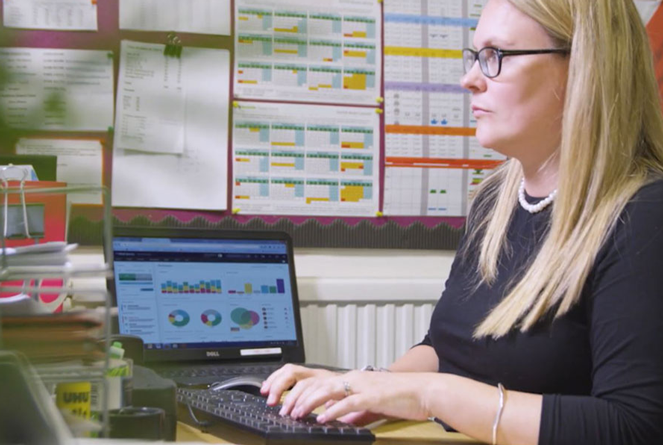Introduction
Shared Parental Leave (SPL) has emerged as an important policy, providing parents with increased flexibility in balancing work and family life during the early stages of their child's life. In the education sector, where the commitment to developing both young minds and protecting family life is paramount, understanding the intricacies of SPL becomes imperative.
This comprehensive blog, written but Chris Mack, Juniper Education’s Shared Parental Leave Expert & HR Data Manager, will delve into the purpose of SPL, its distinctions from maternity leave, its operation within the education sector, common issues faced, complexities involved, guidelines for implementation, and the legal implications schools may encounter. With lots to cover, let’s get stuck in!
Shared parental leave: Purpose and overview
Shared Parental Leave was introduced to offer parents more choices in allocating time off work to care for their newborn or newly adopted child/children. This departure from traditional maternity leave allows parents to share the caregiving responsibilities, promoting gender equality in parenting roles. The core purpose is to help families determine how best to use their leave entitlements, ensuring a supportive environment for both parents.
The benefits of Shared Parental Leave:
Maternity leave, designed for the birth mother, emphasises recovery and bonding. In contrast, Shared Parental Leave offers an innovative approach, allowing parents to share leave and providing these benefits:
- Equal partnership: Facilitates shared responsibilities between parents.
- Career flexibility: SPL gives families greater control over their time off and flexibility in their career choices, promoting a balanced professional and family life approach.
- Father/partner involvement: The other parent can care for the child during crucial early months.
- Bonding: Allows stronger bonds between both parents and the child, contributing to a supportive family environment.
- Promotes gender equality: SPL challenges traditional gender roles, creating a more equal distribution of caregiving responsibilities and promoting gender equality within the family dynamic.
SPL in the education sector – term-time-only contracts:
Managing SPL in the education sector, particularly for staff with term-time-only contracts, presents unique challenges. Unlike other industries where leave can be easily taken during non-term time, schools must work out the complexities of coordinating leave within term dates. This requires careful consideration and tailored policies to ensure SPL is being used within the academic calendar.
Common issues related to SPL in schools
Schools may encounter various challenges related to SPL, including arranging leave during term time, maintaining continuity in teaching and administrative roles, and addressing potential disruptions to school activities. Clear communication and well-defined policies are essential to managing these issues effectively to create a supportive environment for staff considering SPL. Schools should develop contingency plans to address potential gaps in responsibilities and ensure a smooth transition during SPL periods.
Complexities in SPL – continuous/discontinuous leave, entitlements, and obligations:
Understanding the complexities of SPL is crucial for both schools and staff. Key aspects include differentiating between continuous and discontinuous leave (continuous shared parental leave involves taking the leave consecutively without breaks, while discontinuous leave allows for periods of work between leave periods), determining entitlements based on eligibility criteria, and recognising obligations to communicate plans transparently. Schools should provide comprehensive guidance to staff to ensure a clear understanding of SPL complexities. This may involve:
Training workshops
Conduct regular training workshops or informational sessions dedicated to Shared Parental Leave (SPL). Invite knowledgeable speakers or experts in employment law and HR in schools to provide insights into SPL's complexities, entitlements, and legal aspects.
Detailed written guidelines
Develop and distribute detailed written guidelines outlining the SPL process within the school. Include information on eligibility criteria, notice periods, coordination with term-time schedules, and any additional considerations specific to the school's policies.
Personalised consultations
Offer one-on-one consultations with HR representatives or designated personnel. Provide staff members with the opportunity to discuss their specific situations, ask questions, and seek personalised guidance on navigating SPL complexities based on their individual needs and circumstances.
Interactive Q&A sessions
Host interactive question-and-answer sessions where staff can openly discuss concerns, clarifications, and share experiences related to SPL. Encourage an open dialogue to address any uncertainties and ensure that staff members feel supported in understanding the intricacies of SPL.
Guidelines and actions required for SPL cases in schools
Establishing clear guidelines and communication protocols is vital for effectively managing school SPL cases. Schools must develop comprehensive policies addressing eligibility criteria, notice periods, and the process for requesting and coordinating SPL. Creating a supportive environment for open discussions about SPL plans and potential challenges is crucial for successful implementation. Additionally, schools may consider designating a point of contact or a dedicated HR representative to assist staff with SPL queries and ensure adherence to established guidelines.
Legal implications for schools
While SPL aims to promote equality, schools must be aware of potential legal implications. Gender-based discrimination claims may arise if there is perceived inequality in the treatment of parents taking SPL. Proactively implementing policies that ensure fair and equal treatment for all staff, regardless of gender, is essential to mitigate legal risks. Schools should stay informed about relevant employment laws and seek legal advice when establishing or revising SPL policies to ensure compliance.
Conclusion
Shared Parental Leave in schools represents a progressive step toward creating inclusive and supportive work environments for parents.
If you want further information about this subject, our recorded webinar, 'Shared Parental Leave in Schools,' hosted by our expert Chris Mack, is a great place to start.
Or why not book a consultation with our expert team and see how we can help your school?


/Primary%20school%20.jpg?width=2000&name=Primary%20school%20.jpg)








.png?width=940&height=788&name=Lingfield%20College%20Case%20Study%20(5).png)
-1.png?width=1000&height=833&name=National%20Association%20of%20Head%20Teachers%20(3)-1.png)
-3.png?width=1080&height=1080&name=Untitled%20design%20(10)-3.png)







